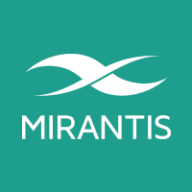

Oracle Cloud Infrastructure and Mirantis OpenStack for Kubernetes are competing in cloud infrastructure. OCI holds the upper hand due to its pricing and support, while Mirantis excels in features for customization and networking, which attract organizations needing advanced setups.
Features: OCI provides strong computing capabilities, robust security, and integration options. Mirantis offers extensive customization, advanced networking features, and is suited for complex deployments.
Ease of Deployment and Customer Service: OCI is noted for straightforward deployment and efficient customer service, supported by comprehensive documentation. In contrast, Mirantis requires more expertise for deployment but offsets this with a strong support framework.
Pricing and ROI: OCI delivers a more favorable pricing model and rapid ROI due to lower costs and scalable options, whereas Mirantis involves a higher initial cost but offers long-term value through its feature set.
| Product | Market Share (%) |
|---|---|
| Oracle Cloud Infrastructure (OCI) | 7.6% |
| Mirantis OpenStack for Kubernetes | 0.2% |
| Other | 92.2% |

| Company Size | Count |
|---|---|
| Small Business | 33 |
| Midsize Enterprise | 20 |
| Large Enterprise | 53 |
Mirantis OpenStack delivers performant, scalable IaaS so you can deploy, run, and scale bare-metal private clouds by leveraging the capabilities of Kubernetes to provide an extremely reliable and highly scalable private cloud solution.
Oracle Cloud Infrastructure offers autonomous database solutions, flexible scalability, and seamless application integration, backed by strong security features. Its competitive pricing and multi-tenancy capabilities provide significant value for enterprises needing comprehensive cloud infrastructure.
Oracle Cloud Infrastructure delivers robust database management, frequent updates, and advanced storage and network services. It boasts global pricing consistency and broad accessibility, making it a preferred choice for hosting databases and migrating on-premises applications. Users in diverse sectors rely on its ease of use, particularly in hosting applications and infrastructure management. However, OCI faces challenges in documentation and integration with third-party services and seeks improvement in automation, support responsiveness, and regional availability.
What are the key features of Oracle Cloud Infrastructure?OCI is utilized by companies in sectors like gaming, finance, and IoT for hosting databases and ERP systems. Its robust infrastructure supports high-performance computing and application development, making it a favorable option for integration and analytics tasks. Enterprises benefit from its capability to migrate on-premises systems to the cloud, enhancing their operational efficiency.
We monitor all Infrastructure as a Service Clouds (IaaS) reviews to prevent fraudulent reviews and keep review quality high. We do not post reviews by company employees or direct competitors. We validate each review for authenticity via cross-reference with LinkedIn, and personal follow-up with the reviewer when necessary.